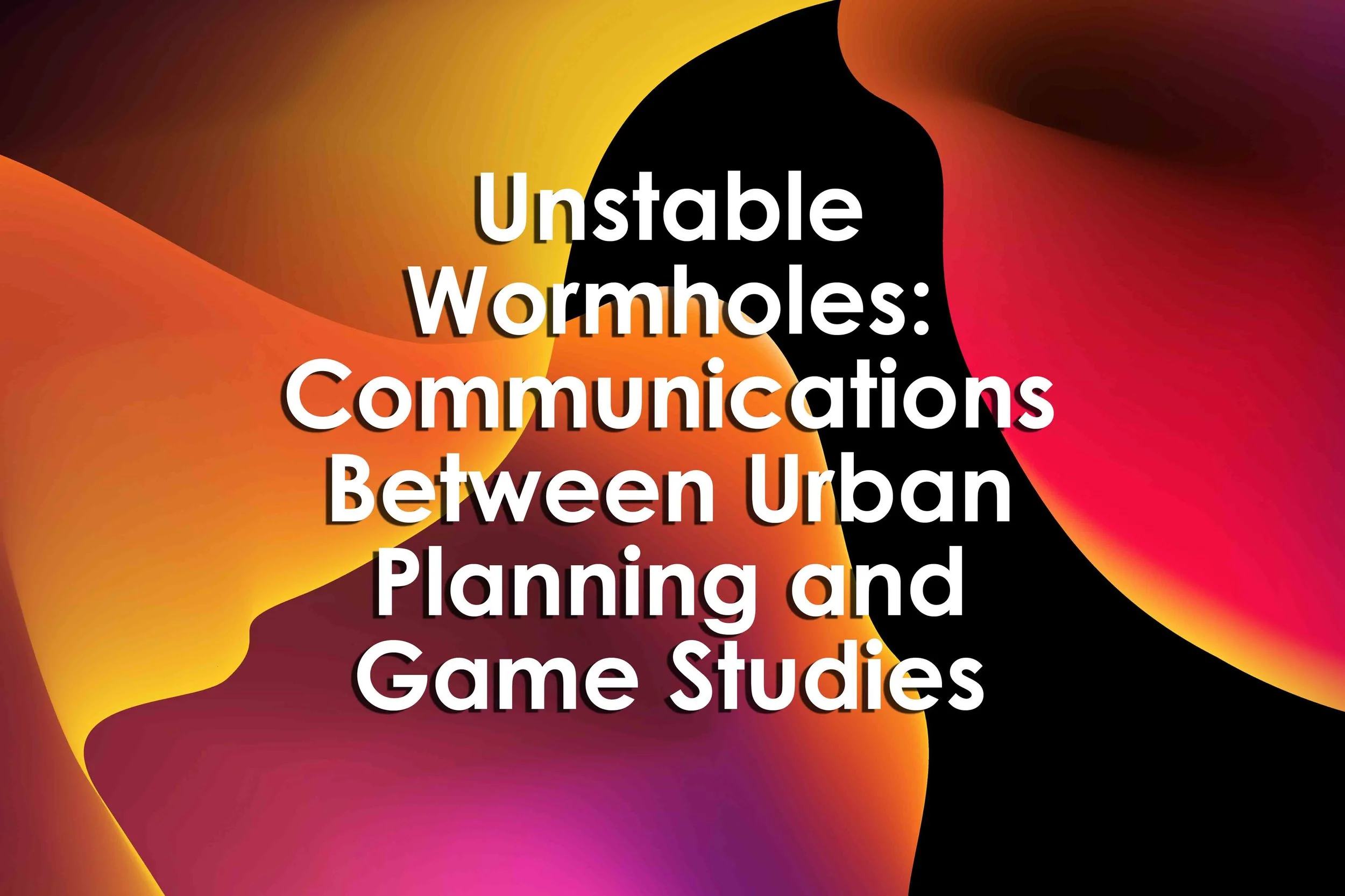Unstable Wormholes: Communications Between Urban Planning and Game Studies
Unstable Wormholes: Communications Between Urban Planning and Game Studies
Unstable Wormholes: Communications Between Urban Planning and Game Studies
By Moozhan Shakeri
Abstract
“The past decade has seen a gradual but steady increase in the planning scholars’ interest in outlining a functional place for games in planning. A wide range of games for and about urban planning is developed and tested, from data-driven games that rely on extensive modelling techniques and aim to reduce the cost and risk of real-world scenario testing, to those that seek to educate their players about the complex nature of political and social issues. Despite the increasing interest in strengthening communications between planning and game studies, the current state is an amalgam of confusion and optimism about games’ role and added value. To shed light on why such confusions emerge, the article reflects on the nature and outcomes of communications between urban planning and games studies and explores games’ historical and current conceptions in planning. By adopting concepts from the work of Holbrook on interdisciplinary communications, the article explores how game studies’ concepts are rendered useful in planning and how planning theory has dealt with untranslatability and incommensurability of concepts in the processes of establishing and sustaining communications with game studies.”
Reference
Shakeri, M. (2022). Unstable wormholes: Communications between urban planning and game studies. Urban Planning, 7(2). doi:10.17645/up.v7i2.4953 https://www.cogitatiopress.com/urbanplanning/article/view/4953
Keywords
Game design theory, interdisciplinary studies, participatory planning, planning theory, research

